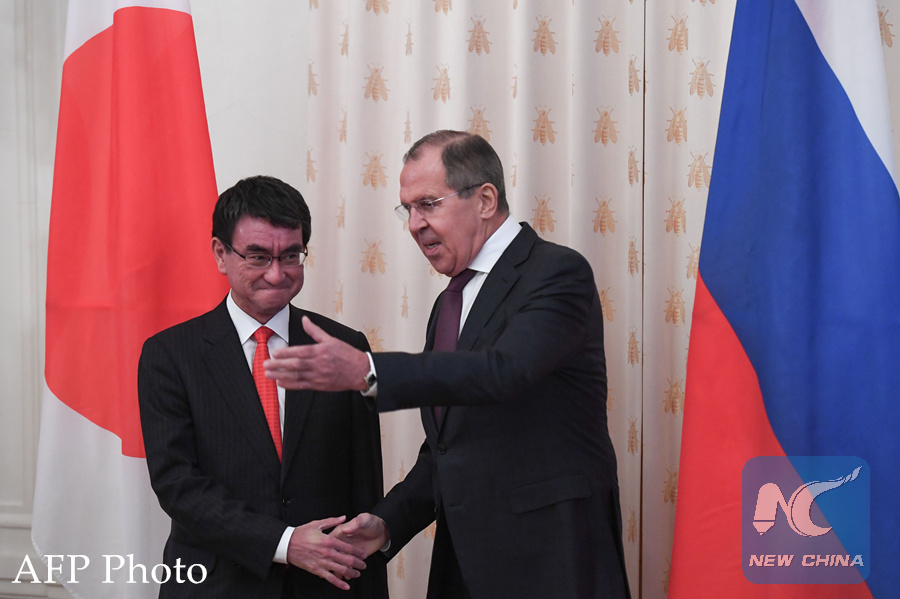
Russian Foreign Minister Sergei Lavrov (R) shows the way his Japan's counterpart Taro Kono during a meeting in Moscow on November 24, 2017. (AFP PHOTO)
MOSCOW, Nov. 24 (Xinhua) -- Russia and Japan support a settlement of the Korean Peninsula crisis on the basis of the resolutions of the United Nations Security Council (UNSC) and hope a way would be found to resume negotiations, the foreign ministers of the two countries said here Friday.
"We hope that in the end it will still be possible to find a way out of this spiral of confrontation and try to find ways to resume the negotiation process," Russian Foreign Minister Sergei Lavrov said at a joint press conference with his Japanese counterpart Taro Kono following bilateral talks.
"To denuclearize the Korean Peninsula, which is a common task of Japan and Russia, a full implementation of the resolutions of the UNSC is necessary. We have reached an agreement to cooperate closely in this sphere," Kono said.
Lavrov said Moscow does not accept the "missile and nuclear stunts" of the Democratic People's Republic of Korea (DPRK) in flagrant violation of UNSC resolutions.
However, Russia, together with China and a number of other countries, insist on implementing the UNSC resolutions with their provisions for resuming negotiations, he said.
Russia is also concerned at the United States deploying elements of its missile defense system in South Korea and Japan under the pretext of threats from the DPRK, Lavrov said.
Though the DPRK did not carry out any tests or missile launches in the last two months, Washington, however, was attempting to provoke Pyongyang by holding military exercises in the region and imposing new sanctions on the DPRK, so as to "finally switch to military options", he said.
The use of force in the region, he pointed out, would result in hundreds of thousands, if not millions, of victims, which leading experts and even representatives of the U.S. administration recognized.
The Japanese foreign minister said that Japan saw "an unprecedented threat", not only to Japan and Russia, but also to the international community in general from the DPRK's nuclear tests and launch of missiles.
Kono said Japan considers it necessary to use all available methods and means to increase pressure and persuade the DPRK to halt its nuclear and missile program.

